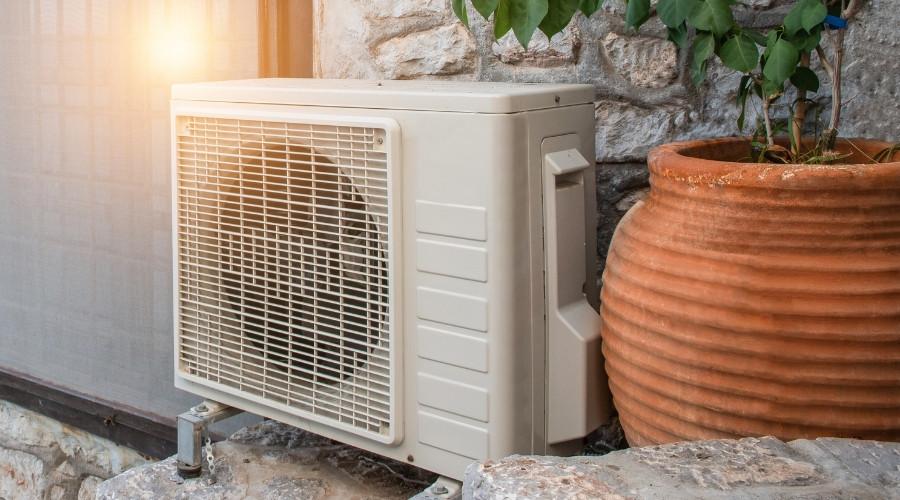Heating professionals in DeBary, FL, discuss the benefits of new heat pumps and signs that repairs are needed.
DeBary, United States - October 29, 2025 / Mid Florida A/C /
Heat Pumps Explained
Wondering why a heat pump belongs on the short list for a comfort upgrade? A modern heat pump system delivers heating and cooling from a single platform, often with lower day-to-day operating demands than older equipment. This overview explains what a heat pump is, outlines the benefits of both ducted heat pump and ductless heat pump options (including the mini-split heat pump format), and highlights common signs that heat pump repair or a new heat pump installation may be the right next step.
What Is a Heat Pump?
A heat pump is an all‑in‑one HVAC appliance that moves heat instead of generating it through combustion. In heating mode, the system extracts available heat from outdoor air and transfers that energy indoors; in cooling mode, the process reverses, carrying indoor heat outside much like a traditional air conditioner. Because one unit handles both seasons, a single heat pump installation can simplify comfort planning and equipment maintenance.
Configurations are suitable for a variety of homes and spaces. A ducted heat pump connects to existing supply and return ductwork to condition the whole house, making it a natural replacement for many central systems. A ductless heat pump (mini split heat pump) uses compact air handlers mounted in the rooms they serve, offering zoned comfort without installing or modifying ducts. Both formats rely on the same core technology—refrigerant moving through an indoor and outdoor coil—but differ in how conditioned air reaches living areas. With thoughtful system design, a heat pump system can support balanced temperatures, quieter operation, and better control across zones.
Benefits of Installing a Heat Pump
 A well‑planned heat pump installation can simplify comfort and streamline energy use across the year. Because a heat pump transfers existing heat rather than creating it, daily operation can be more measured than systems designed around resistance heat or fuel combustion. In practice, that often translates to steadier temperatures, fewer swings, and less frequent cycling—attributes that support comfort as seasons change.
A well‑planned heat pump installation can simplify comfort and streamline energy use across the year. Because a heat pump transfers existing heat rather than creating it, daily operation can be more measured than systems designed around resistance heat or fuel combustion. In practice, that often translates to steadier temperatures, fewer swings, and less frequent cycling—attributes that support comfort as seasons change.
Versatility is a major draw. One outdoor unit and matched indoor components manage both summer cooling and winter heating, reducing the need to purchase and maintain separate systems. Where ducts exist and are in good condition, a ducted heat pump can deliver whole‑home comfort with familiar supply registers. In homes without ducts—or additions, such as sunrooms, finished basements, and workshops—a ductless heat pump or mini-split heat pump targets specific zones with independent controls. Zoned operation can help curb conditioning in rarely used rooms, thereby matching output to actual demand.
Additional advantages include refined humidity control in cooling mode, whisper-quiet indoor operation from many modern air handlers, and installation flexibility that accommodates both retrofits and new construction. In colder regions, many systems are paired with supplemental heat or a dual-fuel setup to balance comfort and economy across extreme weather conditions. Regardless of the configuration, a quality heat pump system, designed and installed by a knowledgeable contractor, helps align comfort, efficiency, and long-term reliability.
Signs Heat Pump Repair Is Needed
 Like any mechanical system, a heat pump occasionally signals trouble before a full outage. Unusual sounds—squealing, grinding, rattling, or loud buzzing—often point to worn bearings, loose hardware, or a failing motor that merits prompt heat pump repair. Short cycling (frequent on‑off operation), tripped breakers, or system lockouts can indicate sensor issues, airflow restrictions, or control faults. Ice accumulation that persists beyond normal defrost cycles suggests low airflow, low refrigerant, or outdoor coil problems that should be checked by a professional.
Like any mechanical system, a heat pump occasionally signals trouble before a full outage. Unusual sounds—squealing, grinding, rattling, or loud buzzing—often point to worn bearings, loose hardware, or a failing motor that merits prompt heat pump repair. Short cycling (frequent on‑off operation), tripped breakers, or system lockouts can indicate sensor issues, airflow restrictions, or control faults. Ice accumulation that persists beyond normal defrost cycles suggests low airflow, low refrigerant, or outdoor coil problems that should be checked by a professional.
Performance symptoms matter as much as noises. Weak airflow from registers or indoor heads may trace to a clogged filter, obstructed coil, blower issues, or duct problems in a ducted heat pump. Temperature inconsistencies across rooms can signal a refrigerant charge issue, a malfunctioning reversing valve, or misconfigured zone settings—especially in a mini split heat pump installation where multiple indoor units must coordinate. Rising electric bills without a weather‑related explanation can likewise indicate declining system efficiency and the need for inspection.
Mode errors are another clue. A heat pump stuck in cooling or heating mode typically points to a control board fault or a reversing valve that isn’t shifting correctly. Outdoor fan problems, visible oil staining around service ports, or frost on linesets also warrant attention. Addressing these signs early with targeted heat pump repair helps protect compressors and motors, restores efficient operation, and minimizes the risk of a no‑heat or no‑cool emergency.
About Mid Florida A/C
Mid Florida A/C is a 5-star-rated family-owned and operated HVAC company proudly serving DeBary, FL, and the neighboring areas. They provide prompt arrivals and friendly professionalism, so call them today to schedule heat pump services in DeBary, FL.

Contact Information:
Mid Florida A/C
116 S Charles Richard Beall Blvd
DeBary, FL 32713
United States
Justin Hall
(386) 668-8752
https://www.mid-floridaair.com/

